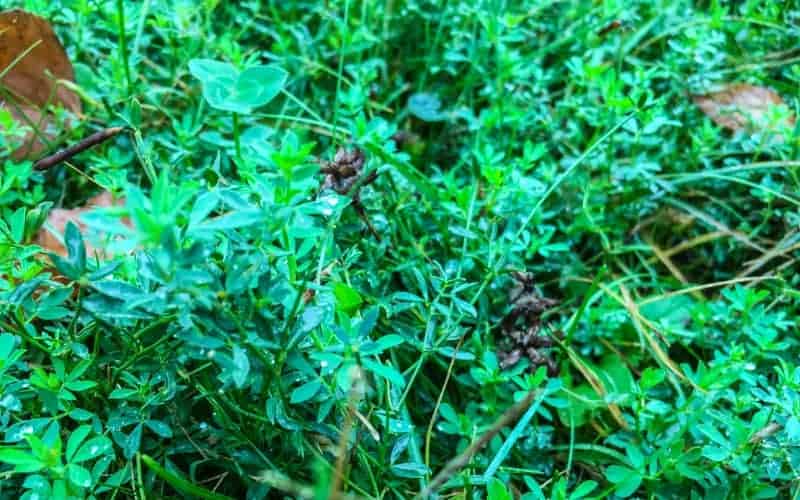Dogs and cats are beloved pets that bring joy to our lives. However, their natural curiosity and tendency to explore can sometimes lead them into trouble. As responsible pet owners, it’s essential to be aware of what they eat, especially if you have a garden. One common plant found in gardens is the blue star creeper, but is it safe for our furry friends?
What is Blue Star Creeper?
Blue star creeper is a popular evergreen groundcover plant that requires minimal attention to thrive. It features small blue or white flowers that attract bees, wasps, and butterflies. This resilient plant can withstand foot traffic and can even be mowed. It flourishes from mid-April until the end of December.
However, despite its beauty and low maintenance nature, blue star creeper poses a danger to our pets.
Is Blue Star Creeper Poisonous to Dogs and Cats?
Yes, blue star creeper is toxic to both dogs and cats. If ingested, any part of the plant can cause harm. It is crucial to avoid planting blue star creeper in areas accessible to your pets. Additionally, discourage your pets from eating any part of this plant.
Not only is blue star creeper poisonous to pets, but it is also toxic to humans. If you have sensitive skin, avoid direct contact with the plant to prevent allergic reactions.
The Dangers for Dogs
Consuming blue star creeper can cause various issues for dogs. It may lead to skin irritation, itching, and problems with vision. In severe cases, dogs may experience difficulty breathing, violent vomiting, and diarrhea. It is important to prioritize the safety of your furry friends and keep them away from this toxic plant.
The Dangers for Cats
Cats are also susceptible to the dangers of blue star creeper. Ingesting this plant can result in skin irritation, persistent itching, and discomfort. Cats may also experience difficulty breathing, vomiting, and diarrhea. It is crucial to prioritize the well-being of your feline companions and ensure they are kept away from this harmful plant.
Frequently Asked Questions
Q: What should I do if my pet ingests blue star creeper?
A: If you suspect that your pet has ingested blue star creeper and they begin showing symptoms, it is important not to panic. Contact the Pet Poison Hotline for immediate assistance or take your pet to the vet for proper treatment.
Q: Can blue star creeper be planted in a pet-friendly garden?
A: It is best to avoid planting blue star creeper in a garden where pets have access. Opt for safe plants that won’t pose a risk to your pets’ health.
Q: Are there any alternative groundcover plants that are safe for pets?
A: Yes, there are many safe alternatives available for groundcover plants in pet-friendly gardens. Consult with local nurseries or do research to find suitable options for your specific region.
Conclusion
Blue star creeper may be a beautiful addition to your garden, but it poses serious risks to your beloved pets. It is important to prioritize their safety and well-being by avoiding planting this toxic plant where they can access it. If you suspect your pet has ingested blue star creeper and shows symptoms, seek immediate assistance from the Pet Poison Hotline or consult your veterinarian for proper treatment.
By being proactive and informed, we can create a safe environment for our furry friends to thrive and enjoy their lives without unnecessary risks.
For more information about protecting your pets and creating a pet-friendly environment, visit Pawsoha.

